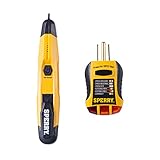
Whether you’re completely new to home ownership or just feel like building or fixing something yourself for the very first time, here are the best tools to get you started on your DIY journey.
Keep in mind, this isn’t an exhaustive list by any means, but it will at least get you started—and it’s enough to complete all sorts of different projects around the house. As you become more experienced and come across more-advanced projects that you want to do, you’ll inevitably grow your tool collection to new heights!
But if you’re starting out, these are the best tools to consider buying at first.
A Handful of Cheap, Basic Tools

Before we get into the bigger tools that you’ll want, it’s important to cover your bases with some cheap, basic tools that you’ll rely on for most projects:
You could also aim for an all-in-one tool kit that comes with most everything you’d want starting out, especially if you’d rather not piece together your own custom set of tools.
The point, though, is that a combination of these kinds of tools will be immensely helpful for pretty much any project, whether it’s as simple as hanging a picture frame on the wall, to completely remodeling an entire room in your house. You’ll absolutely want these tools before anything else.
Power Drill/Impact Driver Combo

Perhaps the first power tool that you should purchase would be a power drill, which is great for drilling holes, as well as driving in screws. However, I’d spring for a combo that includes an impact driver as well, which will make your projects a whole lot easier.
Impact drivers make driving in screws way easier, especially when they’re longer screws that need to be driven into wood—an impact driver makes that super easy work.
Plus, having both by your side can make projects go by a lot quicker, since you can have the power drill for drilling holes and the impact driver for driving in screws—you won’t have to take the time to switch out bits all the time.
Circular Saw

I recommend that every DIYer own a power saw of some kind, and the most versatile is a circular saw, like this one from DeWalt.
You can use it to break down plywood or cut up some 2x4s. Arguably, a table saw and a miter saw would be much more capable tools for stuff like this, but if you don’t have a lot of room and money, a circular saw is a decent two-for-one tool that can get the job done.
Socket Set

They say the world is built on nuts and bolts. Ok, maybe they don’t say that, but they should. A decent socket set will tackle pretty much any project dealing with nuts and bolts.
Something like this is more geared (no pun intended) for those DIYers who want to work on their cars or other machinery, but there are still plenty of uses for socket sets around the house, like mounting a TV on the wall or fixing appliances.
Plus, it’s definitely one of those tools that if you get a big enough set, you’ll never need to buy another socket set ever again. So it’s definitely worth buying the biggest set you can afford.
Voltage Tester

If you’ll be doing any electrical DIY projects, you’ll want to make sure to turn off the circuit breakers and test the lines to make sure it’s actually off. The best way to do that is with a voltage tester.
I recommend getting both an overall voltage tester and a receptacle tester that you plug into outlets. That way you can see if an outlet is truly off without having to take it out of the wall to get to the wires.
Personal Protective Equipment

Last, but certainly not least, for pretty much any DIY project you’ll want to make sure to protect yourself. This means using ear protection, eye protection, and even mouth/nose protection in some cases.
Get yourself some earplugs, safety glasses, and a respirator. Power tools are loud and can easily damage your hearing. Plus, you don’t want anything flying into your eyes. And if you’re creating a lot of dust from construction, wear a respirator to prevent breathing all that crap in. We truly can’t emphasize the importance of this category enough. For around $20 or so you can save your hearing, your eyes, and your lungs. Don’t cheap out on $20 worth of gear now to suffer from ringing ears and partial blindness in one eye later.


 Craig Lloyd
Craig Lloyd











